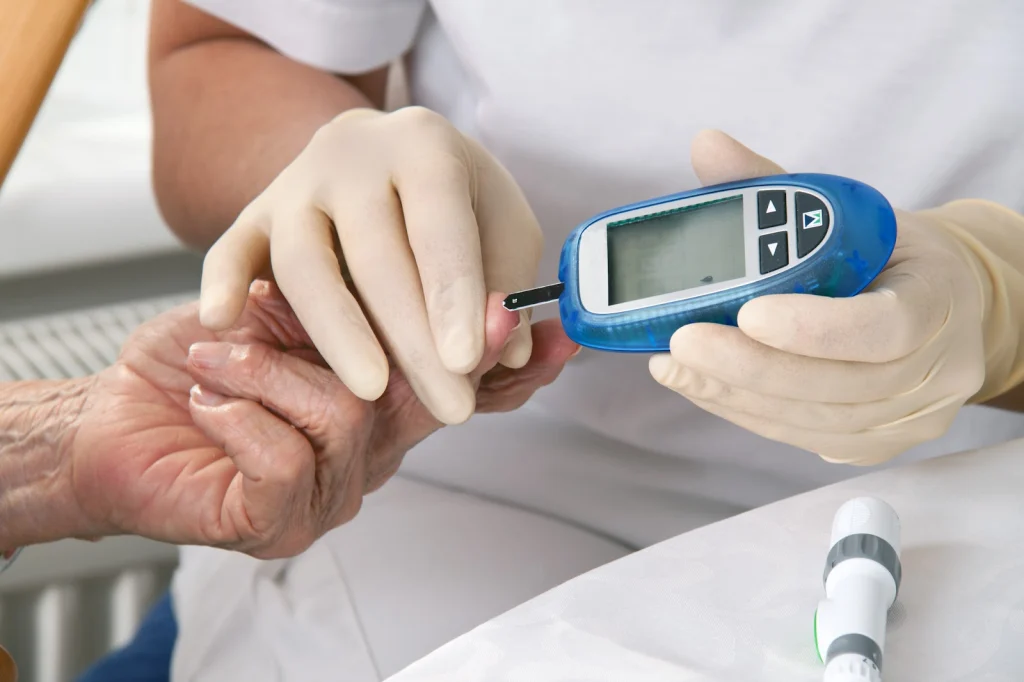Diabetes is a chronic health condition that affects millions of people worldwide. It occurs when the body is unable to properly regulate blood sugar (glucose) levels, leading to elevated levels of sugar in the bloodstream. Over time, uncontrolled diabetes can lead to serious complications such as heart disease, nerve damage, kidney problems, and even blindness. However, managing diabetes effectively can help prevent or delay these complications and improve quality of life. This blog will discuss practical and effective strategies for managing diabetes and maintaining a healthier life.
Understanding Diabetes
There are two main types of diabetes:
Type 1 Diabetes
An autoimmune condition where the body’s immune system attacks and destroys the insulin-producing cells in the pancreas. This type of diabetes is typically diagnosed in childhood or early adulthood and requires insulin therapy for life.
Type 2 Diabetes
The more common form of diabetes, where the body becomes resistant to insulin or doesn’t produce enough of it. Type 2 diabetes can develop at any age but is more common in older adults. Lifestyle factors such as poor diet, physical inactivity, and obesity can increase the risk of developing type 2 diabetes.
Managing both types of diabetes requires a combination of lifestyle changes, medication, and regular monitoring to keep blood sugar levels within a healthy range.

1. Maintain a Healthy Diet
Diet plays a crucial role in managing diabetes. Choosing the right foods can help control blood sugar levels and prevent fluctuations. Here are some dietary guidelines to follow:
Focus on Whole Grains
Opt for whole grains like brown rice, quinoa, and oats instead of refined grains. Whole grains are rich in fiber, which helps slow the absorption of sugar into the bloodstream and improves blood sugar control.
Incorporate Lean Proteins
Include lean protein sources such as chicken, turkey, fish, beans, and legumes. Protein helps stabilize blood sugar and promotes satiety, reducing the risk of overeating.
Eat Plenty of Vegetables
Non-starchy vegetables like spinach, kale, broccoli, and cauliflower are excellent choices for diabetics. These vegetables are low in calories and carbohydrates, making them ideal for blood sugar management.
Limit Sugary Foods
Avoid or minimize sugary snacks, sodas, and processed foods, as they can cause sharp spikes in blood sugar levels. Instead, satisfy your sweet tooth with fruits like berries, apples, and pears.
Control Portion Sizes
Eating in moderation is key to managing blood sugar levels. Be mindful of portion sizes, especially when it comes to carbohydrate-rich foods like bread, pasta, and potatoes.
2. Stay Physically Active
Physical activity is one of the most effective ways to manage diabetes. Exercise helps the body use insulin more efficiently, reduces blood sugar levels, and can aid in weight loss. Regular physical activity can also improve cardiovascular health, reduce stress, and enhance overall well-being. Here are some tips to incorporate exercise into your daily routine:
At Least 150 Minutes of Moderate Exercise Per Week
This could include activities like brisk walking, swimming, cycling, or dancing. Aim for at least 30 minutes a day, five times a week.
Strength Training
Incorporating strength training exercises, such as lifting weights or doing bodyweight exercises, can help increase muscle mass, which improves insulin sensitivity and supports blood sugar control.
Consistency
Find an exercise routine that works for you and stick to it. Consistent activity will provide the best results in managing blood sugar levels.
For Your Information
- How much exercise benefits are really needed for a healthy heart? read here and know some more interesting and informative facts.

3. Monitor Your Blood Sugar Regularly
Regular monitoring of blood sugar levels is essential to managing diabetes effectively. Monitoring helps you understand how your body responds to different foods, activities, and medications. It also enables you to detect any changes or fluctuations in your blood sugar that could require adjustments in treatment.
Home Blood Sugar Testing
Many diabetics use a blood glucose meter to check their blood sugar levels at home. Depending on your type of diabetes and your doctor’s recommendations, you may need to check your blood sugar several times a day.
Continuous Glucose Monitors (CGMs)
Some people with diabetes use CGMs, which provide real-time data on blood sugar levels throughout the day. This can help track trends and make adjustments as needed.
Work with Your Doctor
Regular check-ups with your healthcare provider are essential for managing diabetes. Your doctor will help you set target blood sugar levels and adjust your treatment plan as necessary.

4. Take Medications as Prescribed
For many people with diabetes, medications are necessary to help manage blood sugar levels. The type of medication prescribed will depend on the type of diabetes, the severity of the condition, and individual health factors. Common medications for diabetes include:
Insulin
For people with type 1 diabetes and some people with type 2 diabetes, insulin is required to regulate blood sugar. Insulin can be administered via injections or an insulin pump.
Oral Medications
Type 2 diabetics may be prescribed oral medications that help the body use insulin more effectively or increase insulin production. Some common medications include metformin, sulfonylureas, and DPP-4 inhibitors.
Other Injectable Medications
In addition to insulin, other injectable medications, such as GLP-1 receptor agonists, may be prescribed to help control blood sugar.
Note
It is important to take medications as prescribed and never stop or adjust the dosage without consulting your doctor.
- Do you know the health benefits of intermittent fasting? Is it right for you? Click here and know some interesting facts about it.
5. Manage Stress Effectively
Stress can have a significant impact on blood sugar levels, as it triggers the release of hormones like cortisol and adrenaline that can raise blood sugar. Managing stress is crucial for people with diabetes to maintain stable blood sugar levels. Here are some strategies for managing stress:
Practice Mindfulness
Techniques such as deep breathing, meditation, and yoga can help reduce stress and promote relaxation.
Get Enough Sleep
Poor sleep can increase stress and negatively affect blood sugar levels. Aim for 7-9 hours of quality sleep each night.
Engage in Hobbies
Find activities that bring you joy and help you unwind, whether it’s reading, gardening, or spending time with loved ones.
6. Maintain a Healthy Weight
Maintaining a healthy weight is particularly important for individuals with type 2 diabetes. Excess weight, especially abdominal fat, can make it harder for the body to use insulin effectively. Losing even a small amount of weight can improve blood sugar control and reduce the risk of complications. A combination of a balanced diet and regular physical activity is the most effective way to achieve and maintain a healthy weight.
Conclusion
Managing diabetes requires a comprehensive approach that involves lifestyle changes, medication, and ongoing monitoring. By following a healthy diet, staying active, monitoring blood sugar levels, taking medications as prescribed, managing stress, and maintaining a healthy weight, you can effectively control diabetes and reduce the risk of complications. Remember, it’s important to work closely with your healthcare team to develop a personalized diabetes management plan that suits your needs. With the right strategies in place, you can live a healthier, more fulfilling life with diabetes. If you feel any discomfort or any issue in the heart now get the free consultation with best cardiologist in Dubai.
FAQs
1. What are the main symptoms of diabetes?
Common symptoms of diabetes include excessive thirst, frequent urination, unexplained weight loss, fatigue, blurred vision, and slow healing wounds. If you experience these symptoms, it’s important to consult a doctor.
2. Can diabetes be prevented?
While type 1 diabetes cannot be prevented, type 2 diabetes can often be prevented or delayed with a healthy lifestyle. Regular exercise, a balanced diet, and maintaining a healthy weight can significantly reduce your risk.
3. How often should I check my blood sugar?
The frequency of blood sugar testing depends on your type of diabetes and treatment plan. For most people with type 1 diabetes, regular monitoring is required throughout the day, while those with type 2 may need to test less frequently. Always follow your doctor’s advice.
4. Can I eat sugar if I have diabetes?
Yes, you can still eat sugar in moderation, but it’s important to manage your carbohydrate intake. Focus on low-glycemic foods that don’t cause rapid spikes in blood sugar and monitor your blood sugar levels closely.
5. What is the best exercise for managing diabetes?
Aerobic exercises like walking, swimming, and cycling, along with strength training, are excellent for managing diabetes. Aim for at least 150 minutes of moderate exercise each week, as recommended by healthcare professionals.